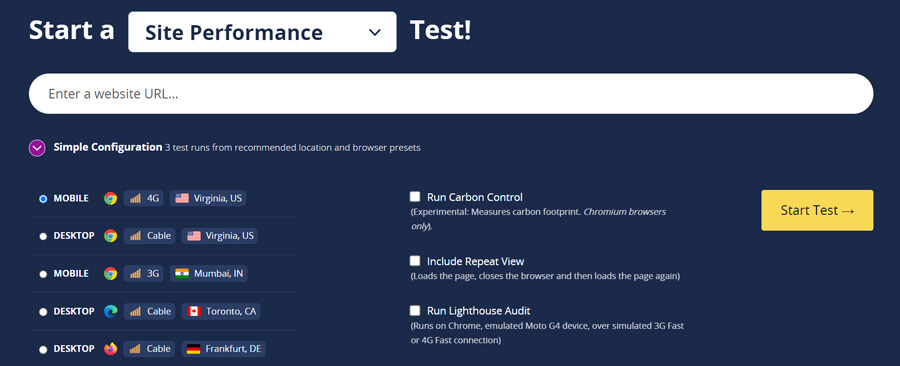Emir is an invaluable member of our team, serving as one of our esteemed Account Managers. With a profound passion for on-page SEO, he possesses an exceptional talent for discovering innovative ways to optimise websites and enhance their rankings. Joining our organisation, Loop, in 2022, Emir brought with him a wealth of expertise gained from his Bachelor’s degree in Marketing Management and Advertising. Currently, he is eagerly pursuing his Master’s degree in International Marketing Strategy, further enhancing his comprehensive understanding of the global marketing landscape. Emir thrives on challenges and continuously seeks fresh opportunities to elevate our clients’ businesses to new heights. Aside from his professional endeavours, Emir has an unwavering passion for culinary arts and loves to cook up a storm. This ardour for cooking exemplifies his drive, creativity, and meticulous attention to detail, qualities that seamlessly translate into his work as a Digital Marketing Executive. His commitment to delivering exceptional results and his genuine enthusiasm for each project make him a trusted and highly sought-after professional. Emir’s profound expertise in on-page SEO, combined with his ambitious pursuit of knowledge and dedication to his clients, make him an invaluable asset to our team. His passion, both in and out of the office, reflects his commitment to excellence, leaving an indelible mark on our clients’ businesses.
Posted on 17/06/2024 by Emir Haskic
Guide to Rank your Website at the top of Google
Read Time: 8 minutes
Businesses are constantly competing for online visibility, and getting to the top of Google is now a crucial goal. With billions of searches happening every day, securing a top spot on Google’s search engine results pages (SERPs) can be the difference between thriving and struggling to attract customers.
Being at the top of Google’s SERPs can unlock numerous benefits, from boosting website traffic and brand visibility to enhancing credibility and building customer trust. Let us explore the possible reasons and ways to climb the Google rankings, giving you practical steps to outshine your competitors and drive organic traffic to your website.
What is Google Ranking?
Google ranking refers to the process by which Google determines the relevance and authority of a website, and subsequently ranks it in search engine results pages (SERPs). The goal of Google ranking is to provide users with the most relevant and useful results for their search queries.
Imagine you’re a librarian, and your job is to help people find the most relevant and helpful books on a particular topic. You have a massive library with millions of books, and every day, people come to you asking for specific information. How do you decide which books to recommend? That is where the Google Ranking Algorithm comes in.
What is the Google Ranking Algorithm?

The Google ranking algorithm is a complex system that uses hundreds of factors to determine the ranking of a website. The algorithm uses over 200 signals to evaluate the relevance and authority of a website, ensuring that users get the most relevant and helpful results.
For example, Google’s “library” is the entire internet, and when someone searches for something, Google’s algorithm quickly scans through billions of web pages to find the most relevant and helpful results.
How does the Google Ranking Algorithm work?
The Google ranking algorithm is a complex system that involves three stages: crawling, indexing, and serving. Here’s a breakdown of each stage:
- Crawling: Picture Google’s bots as little digital explorers, often called “spiders,” scurrying around the web to discover new and existing pages. They’re always on the lookout for pages with lots of links because they’re easier to find. Before a page can be ranked, it has to be crawled and indexed.
- Indexing: Once the spiders find a page, it’s time for the indexing stage. This is where Google figures out what the page is all about by examining its content, including text, images, and links. Google then stores all this information neatly in its index, like organising books in a vast digital library.
- Ranking: Also known as the ranking stage, serving is where the magic happens. Google takes a look at its index and decides how relevant each page is to your search query. It then ranks these pages, serving you the most helpful and relevant results at the top.
Important Factors Influencing Google Ranking
While the Google ranking algorithm uses over 200 signals, some factors are more important than others. While the algorithm is constantly evolving, with various SEO trends emerging, some factors have been consistently identified as crucial for improving search engine rankings. Here are the top most important Google ranking factors.
Quality Content
Quality content is the foundation of a successful SEO strategy. This is because high-quality content provides value to users, increases engagement, and encourages sharing and linking.
Backlinks
Backlinks are a crucial factor in Google’s ranking algorithm, as they indicate the authority and credibility of a website. High-quality backlinks from
reputable websites can significantly improve a website’s ranking and authority.
Technical SEO
Technical SEO refers to the optimisation of a website’s technical aspects, such as page speed, mobile-friendliness, and crawlability. According to a study by Google, page speed is a significant ranking factor, with 53% of users abandoning a website that takes more than 3 seconds to load.
Keyword Optimisation
Keyword optimisation is the process of incorporating relevant keywords into a website’s content to improve its visibility in search engine results. According to a study by Moz, keyword optimisation is a significant ranking factor, accounting for 10% of the total ranking score. However, it’s essential to note that keyword optimisation should be done in a natural and user-friendly way, as over-optimisation can lead to penalties.
User Experience (UX)
User experience (UX) refers to the ease and satisfaction of using a website. A good UX can improve engagement, conversion rates, and overall user satisfaction.
Schema Markup
Schema markup is a type of microdata that provides additional information about a website’s content to search engines. This is because schema markup helps search engines better understand a website’s content and provide more accurate search results.
Social Signals
Social signals refer to the engagement and sharing of a website’s content on social media platforms. However, it’s essential to note that social media signals are not a direct ranking factor, but rather an indirect indicator of a website’s authority and credibility.
Brand Signals
Brand signals refer to the reputation and authority of a website’s brand. According to a study by Moz, brand signals are a significant ranking factor, accounting for 5% of the total ranking score. A strong brand reputation can improve trust, credibility, and overall user satisfaction, leading to better search engine rankings.
Steps to Rank High on Google
By following a series of well-defined steps, you can significantly improve your chances of moving your website to the top of Google.
Step 1: Focus on On-Site SEO
On-page SEO is one of the fastest ways to boost your Google rankings. Here are some crucial on-page tactics to implement:
- Front-load your target keyword in the title tag: Google puts more emphasis on keywords that appear earlier in the title tag.
- Publish long-form, high-quality content: Aim for at least 1,800 words per page, as longer content tends to rank better.
- Include your target keyword a few times: Integrate your main keywords 2-3 times throughout the page to signal relevance to Google.
Moreover, a high click-through rate (CTR) from the search results can positively impact your rankings. Use emotional title tags, descriptive URLs, rich snippets, and compelling meta descriptions to entice users to click on your result.
Step 2: Include LSI Keywords
LSI (Latent Semantic Indexing) keywords are related words and phrases that help Google better understand the context and meaning of your content. Use a tool like LSIGraph to find relevant LSI keywords and incorporate them into your page naturally.
Step 3: Watch out for Technical SEO
Technical SEO issues can significantly hinder your site’s performance in search engines. Keep an eye on the following:
- Mobile Optimisation: Ensure your site is optimised for mobile devices using Google’s Mobile-Friendly Testing tool.
- Site Speed: Run your site through tools like WebPageTest.org or Website Checker to identify and fix any speed issues.

- Index Coverage: Check the Google Search Console for any indexing errors or warnings and address them promptly.
Step 4: Optimise Your Content for Search Intent
Understanding and aligning your content with the user’s search intent is crucial for success. Analyse the top-ranking results for your target keyword and ensure your page provides the information searchers are looking for.
Step 5: Boost Your Engagement Rate
Increasing your engagement rate is crucial for improving your rankings. Optimise your above-the-fold section by featuring engaging content right at the top, structuring your page for easy navigation, and incorporating visuals to make your content more appealing and readable. This will encourage visitors to stay longer and interact more with your site.
Step 6: Explore Keywords and Variations to Target
Expand your keyword targeting by identifying additional relevant keywords you already rank for but haven’t optimised. Use the Google Search Console’s “Performance on Search results” report to find these opportunities and optimise your pages accordingly. You can explore other keyword research tools such as the following.
Step 7: Focus on High-Quality Content
Google’s algorithm heavily relies on backlinks, and the best way to attract them is by publishing content that people want to link to. Focus on creating data-driven and visually appealing content that becomes a valuable resource in your industry.
Step 8: Strengthen Your Site with Backlinks
Even the best content won’t rank well without quality backlinks. Actively promote your content using strategies like broken link building, guest posting, and reaching out to resource pages in your niche.
In addition, Internal linking (linking from one page on your site to another) can help boost the rankings of your most important pages. Use exact-match anchor text in your internal links to signal relevance to Google.
Step 9: Observe the Results
Measure the success of your SEO efforts by tracking organic traffic in Google Analytics, impressions and clicks in Google Search Console, and the impact on leads and sales. Adjust your strategy based on these metrics.
Step 10: Include Catchy and Meaningful Visual Elements
Visuals like images, charts, and infographics can clarify complex information, protect your brand from copyright violations, and even help your content go viral. Use niche-specific keywords when sharing visuals and adhere to best practices like optimising file sizes.
Step 11: Easy to Skim Content
With the average user spending only 54 seconds on a web page, it’s crucial to make your content easy to skim and consume. Use precise language, active voice, bullet points, subheadings, and visuals to break up text and appeal to users.
Partner with Loop Digital to Get your website to the top of Google
Mastering the art of ranking high on Google is a journey that requires dedication, patience, and a strategic approach. By implementing the steps outlined you will be well-equipped to navigate the complexities of Google’s ranking algorithm and position your website as a front-runner in your industry.
At Loop Digital, we understand the intricacies of search engine optimisation and the ever-changing landscape of Google’s ranking factors. Our team of SEO experts is dedicated to helping businesses like yours unlock the full potential of organic search and achieve a commanding online presence.Don’t let your website fall into obscurity – book a free consultation with us today and discover how our tailored SEO solutions can propel your business to the top of Google’s search results.
Looking for your next opportunity?
Digital marketing careers
We’re always on the lookout for talented individuals to join our ever growing team. If you think you’d be a great match for Loop Digital, we’d love to hear from you.

Join 300+ business owners getting weekly growth strategies - subscribe now.
"*" indicates required fields






